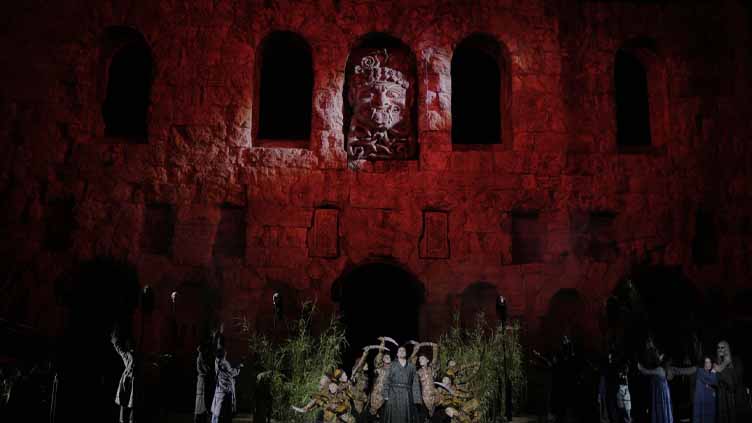An ancient theater in Greece opens for its final season before undergoing a 3-year restoration
Entertainment
The production also needed more space inside the venue to accommodate the scale of the production
ATHENS, Greece (AP) — For visitors to Athens, the ancient Odeon of Herod Atticus is the must-see theater at the foot of the Acropolis. Artists revere it for the majestic stage where legends have performed. And for the Greek capital’s residents it is the touchstone of their summer cultural calendar.
The Odeon of Herod Atticus recently opened the 70th season of the annual Athens Epidaurus Festival, a cherished annual tradition for many Greeks. But this edition marks the last before the theater that’s more than 18 centuries old shuts down for maintenance and restoration work that is expected to last at least three years.
While theater and dance grace its stage, music is its cornerstone. Renowned artists who have performed here include Luciano Pavarotti, Frank Sinatra, Coldplay, and Greece’s own Maria Callas.
Its closure will be a profound loss for spectators who have long enjoyed first-class performances under the stars in one of the world’s most iconic open-air theaters.
“When (people) think of the Athens cultural scene, everyone thinks of the festival and Herodion,” said Katerina Evangelatos, the festival’s artistic director since 2019, calling the theater by its commonly used Greek name. “It has become a synonym of the festival. It is the heart of the festival.”
When the Greek National Opera opened this season’s festival with Giacomo Puccini’s opera Turandot, it erected temporary structures behind the Roman-era odeon’s arched walls to expand available space for performers’ dressing rooms. The permanent underground facilities weren’t enough.
The production also needed more space inside the venue to accommodate the scale of the production.
To meet the opera’s scenic and casting demands, a crew constructed a wooden, balcony-like platform to partially extend over the orchestra pit.
This adaption allowed space for the large cast and complex staging, including the emblematic scene in which the emperor, Turandot’s elderly father, is ceremonially rolled out in his towering throne to watch suitors attempt to solve his daughter’s riddles — at the risk of execution. The scene requires significant simultaneous on-stage presence by multiple performers.



